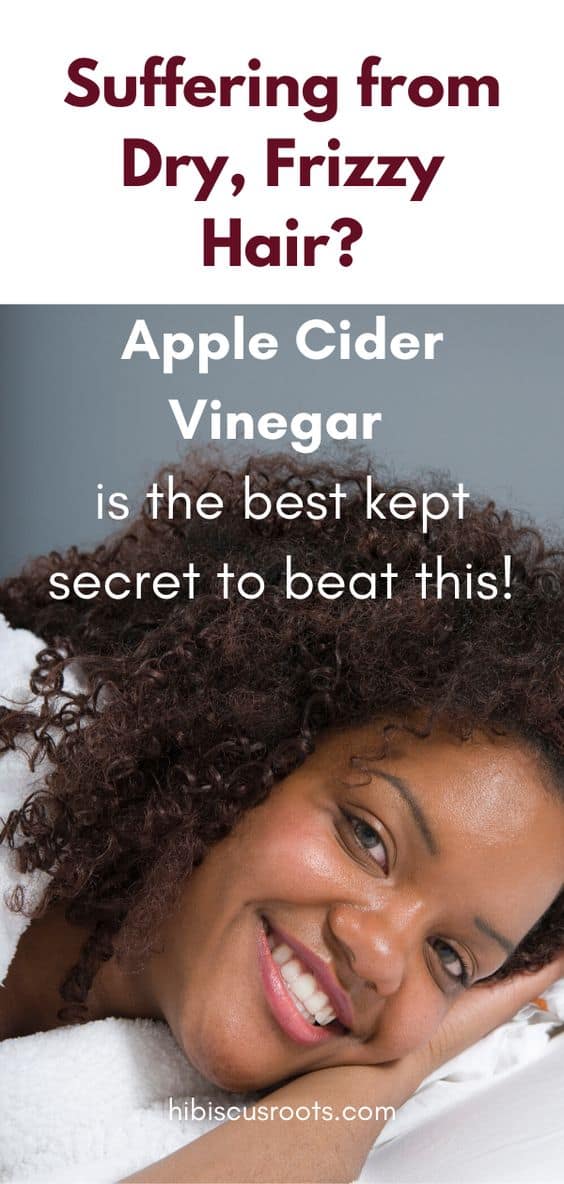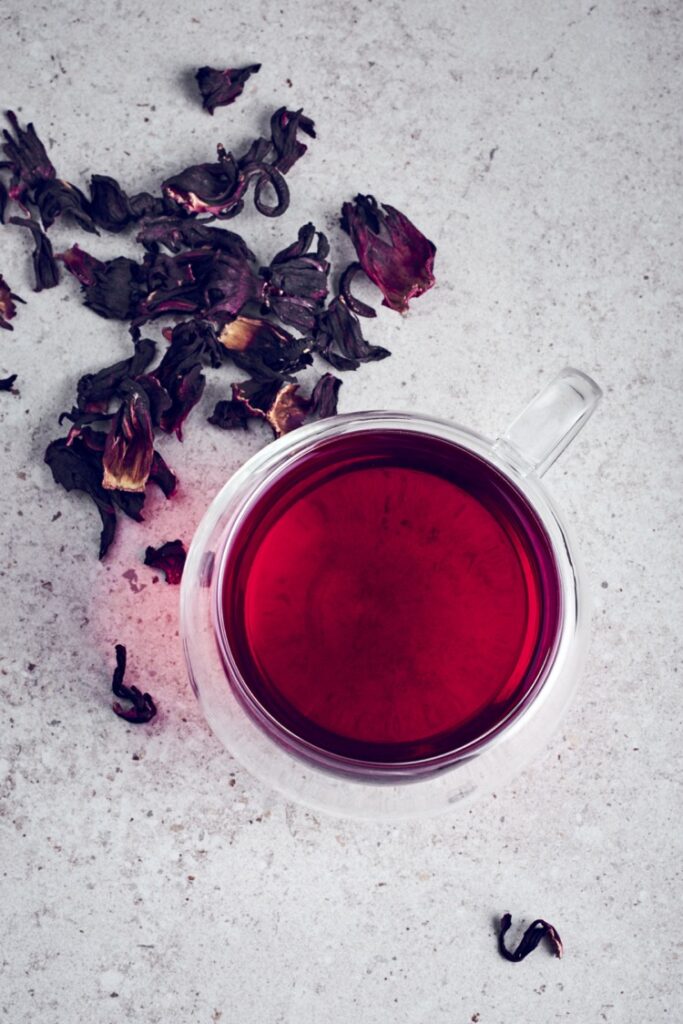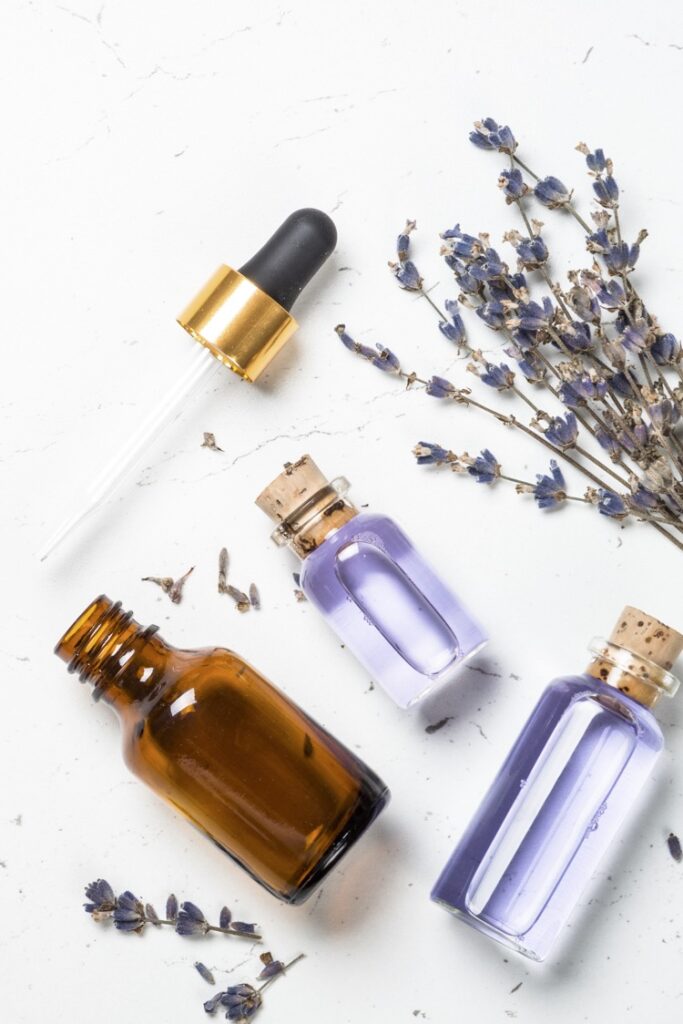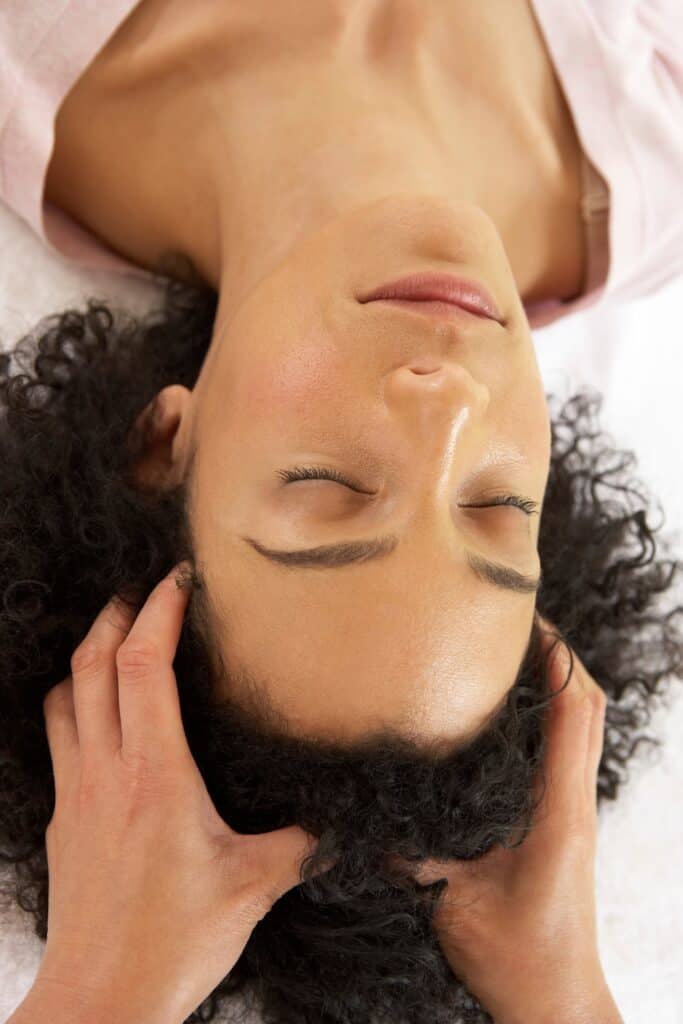Updated: April 2, 2021
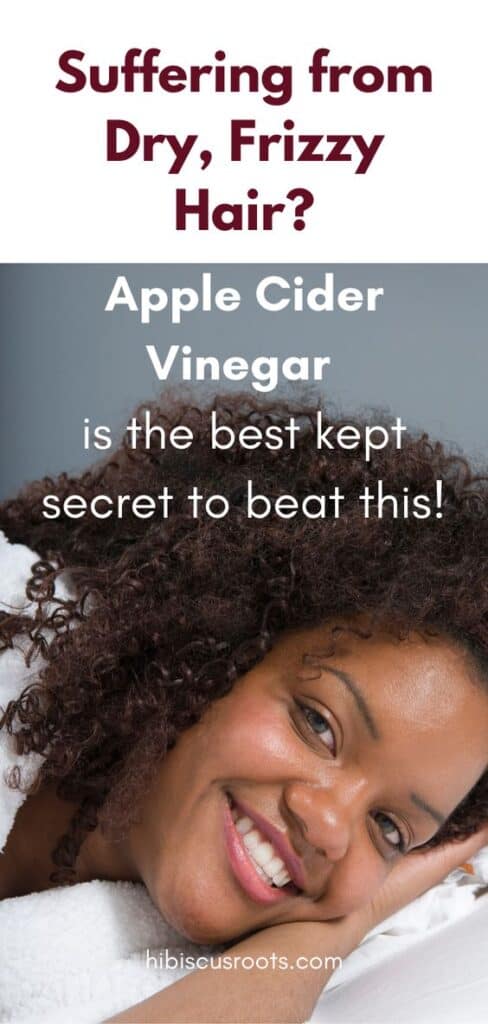
Do you have perpetually dry or frizzy hair? How about hair that feels straw-like, or is really hard to style? Or do you have a scalp that always feels irritated? It sounds like you haven’t added Apple Cider Vinegar to your 4c hair routine, or experienced any of the benefits of ACV just yet!
You may have seen ACV used in hair and wondered if it was really that important, especially if your hair is kinkier in texture.
I know from personal experience that it took me a long time, and actual desperation before finally deciding to try it.
My hair used to fit the description above to a T.
No matter what I did, my hair was constantly dry and brittle. Even after washday, my scalp stayed irritated and inflamed. I had no idea what I could do about this until I came across a recommendation for apple cider vinegar.
In this post, we’re going to be looking at the benefits of apple cider vinegar for 4C hair and how exactly you can use it to turn your hair around in a very short period of time.
This is one of those ingredients that provides immediate results, even for 4C hair. So keep reading to find out how!
What Exactly is Apple Cider Vinegar?
Apple Cider Vinegar (or ACV) is the fermented juice of crushed apples. It is made by juicing and then fermenting apple juice. Here’s a video detailing how you can make your own ACV at home.
It contains tons of minerals and vitamins including B, C, and a key component, acetic acid, that are essential for the body, and especially for hair.
This article will not go into the many benefits of Apple Cider Vinegar for health when taken internally; this WebMD article is extensive on the subject. Here we will focus on its benefits for the hair and scalp on curly-textured heads.
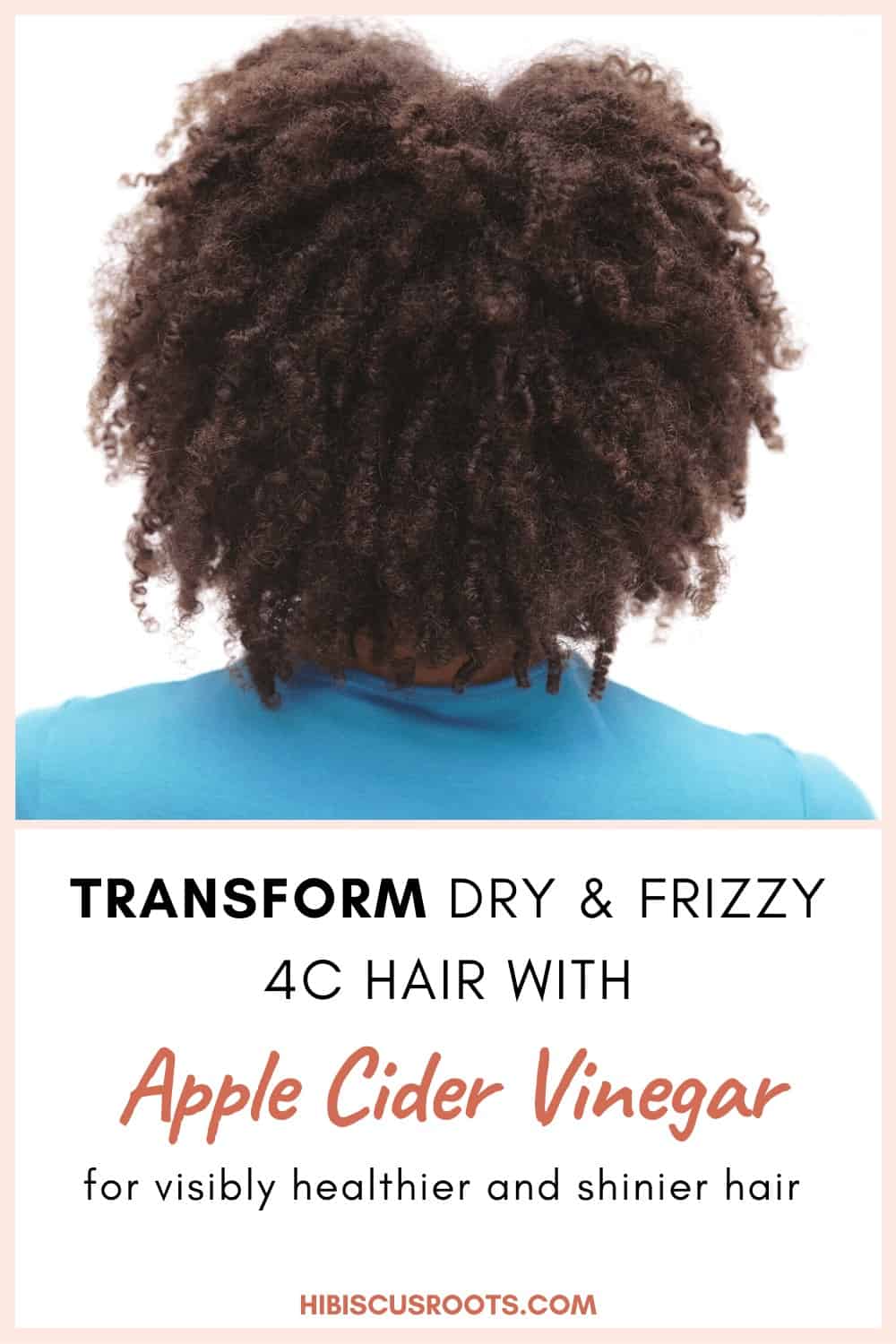
What are the Benefits of Apple Cider Vinegar for 4C Natural Hair?
1. It is antibacterial and antimicrobial
Vinegar can help kill bacteria and other pathogens that can cause irritation and be harmful to the scalp. This means it helps to fight and prevent dandruff!
2. It clarifies the scalp
ACV is rich in AHA (alpha hydroxy acid) or malic acid, which is a gentle exfoliator. It works to take off product build-up on the scalp which may be causing irritation, without stripping the hair of moisture.
3. It rebalances pH
This is essential because the hair and scalp are slightly acidic. Using ACV can help rebalance this natural pH, and strengthening the protective layer of skin over it. Combined with the fact that it is anti-inflammatory, this could work to prevent skin infections, and conditions like eczema.
This is a key benefit given that studies show that hair may appear dull, brittle, or frizzy because the strands have gone too far off-balance and are too alkaline on the pH scale.
By using Apple Cider Vinegar strategically in your hair routine, you will learn to enjoy the benefits of keeping your hair’s pH balanced: hair that is revitalized, rejuvenated, and frizz-free!
You should know that not all Apple Cider Vinegar is created equal. If you do not make it yourself, you should opt for organic brands that contain “The Mother.”
This is just the potent, nutrient-rich cellulose substance that develops during the fermentation process. This just makes sure you’re getting the richest apple cider vinegar for your hair.
We usually recommend Bragg’s but there are tons of other brands that will work just fine!
It is a relatively cheap ingredient. This is both because of how long it lasts if you follow the recommended dosage and the fact that it never expires.
Read Next: 13 Natural Itchy Scalp Home Remedies for Instant Relief!
A Brief Overview of the Importance of pH for Hair
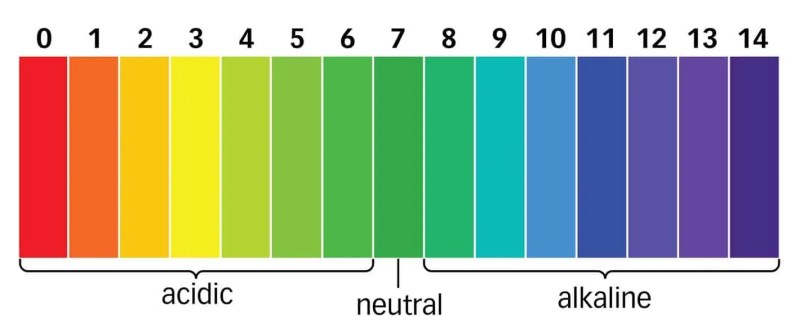
Above, we have a standard pH scale. Ideally, the pH of our hair should be between 4 and 5 on this scale, which slightly acidic. For reference, the pH of pure water is 7 – perfectly neutral, while the pH of Apple Cider Vinegar is between 2 and 3.
If our hair gets too acidic or too alkaline, it becomes visibly duller, frizzier, and unhealthier. This is because the hair cuticle gets lifted, and becomes rougher, more porous, and friction-prone!
We need to rebalance the pH of hair often because it can get disrupted by daily care and habits.
In order to promote maximum health and growth of our hair, following the principles of Ayurveda, we should be doing all that we can to ensure balance in our hair. One of these elements of balance is indeed maintaining pH balance.
How to Use Apple Cider Vinegar in A 4C Hair Routine
We do not recommend using apple cider vinegar too often because too much of it can actually produce adverse results.
Because the pH of Apple Cider Vinegar is so low, it can actually push our strands too far in the acidic direction. Our hair will then end up too acidic, and we’ll be right back at square one.
The dosage and timing of the use of apple cider vinegar are also important. We will outline a few recommendations for use below.
How Much ACV do you Need for Natural Hair?
You should never use straight or undiluted Apple Cider Vinegar in your 4c hair. It is just too acidic on its own to be beneficial to your hair and skin.
We always recommend using ACV at a ratio of 1 tablespoon to 100ml of water to start. Our natural hair is too fragile to risk exposure to harsh acidity. However, you should experiment with this ratio until you find the balance that works for you – just as long as you don’t exceed the standard recommendation of 1 part ACV to 5 parts water. Anything more concentrated than this will do more harm than good.
How to Use Apple Cider Vinegar in Your 4C Hair Routine?
1. As an ACV Natural Hair Rinse:
Once you’ve made your ACV rinse, pour it into an applicator bottle for ease of use. Wash your hair as usual with a moisturizing shampoo, and gently scrunch out excess water in your strands.
Run the ACV slowly throughout your scalp and down the length of your strands. Massage your scalp gently and rinse it out thoroughly after 2-4 minutes. Proceed with deep conditioning and styling. Doing this rinse once every other washday is enough to keep your hair balanced.
If you’re ever caught between wondering whether to do the Apple Cider Vinegar rinse before or after your deep conditioner, it should be done before. This is because ACV is a natural acidifier and clarifier. So you need to balance all that out by deep conditioning afterward to put moisture back in.
2. In ACV-based DIY Recipes:
You can also use ACV in other DIY recipes you make in place of Aloe Vera juice. I love to put it in clay washes, deep conditioners, herb, and henna glosses. Don’t forget to subscribe so you never miss a recipe!
Summary
As you will come to understand, here at Hibiscus Roots we don’t preach any particular practice, ingredient, or remedy as the key to hair health and length.
Our answer is always BALANCE.
We just provide the tools you can use in order to tweak your hair to achieve this balance yourself!
Do you have any other ingredients you had questions about or wondered about the risk of use in 4C hair? Let us know in the comments below!
